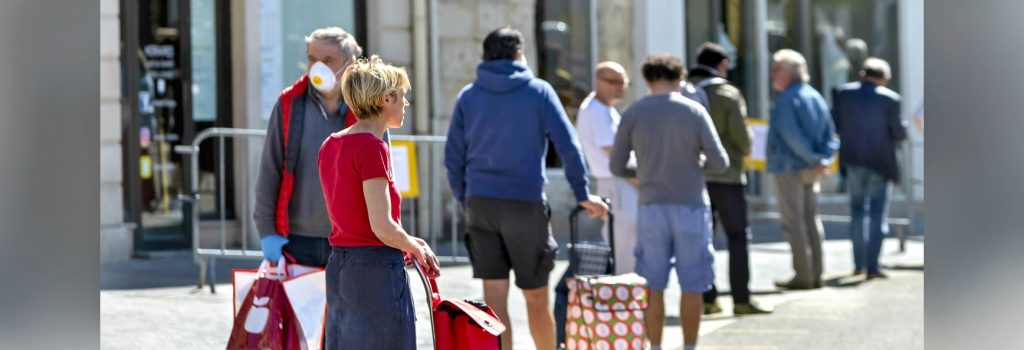After relocating to another country, new residents can often be very unsure of the unwritten rules for standing in line. How, they each wonder, can I queue as the locals do?
Next (sandals), please
A few years ago an image from Thailand went viral. People worldwide were fascinated to see a queue of… sandals while barefooted and languid locals relaxed in nearby seats, calmly waiting their turn. A logical solution for queuing in tropical heat! Meanwhile, in Britain, where it’s joked that people form queues even where there is no need for one, Wimbledon leaves nothing to chance. For those joining the annual queues outside there’s a 30-page rulebook, just to make sure no one is, um, out of line…
A helpful marker
During the FIFA World Cup in Japan, many visiting fans were also amazed to see how locals ‘queued overnight’. Using sticky tape, they left their names and the number of tickets they’d like to purchase on the ground then went home. The next day, an hour or so before the game they returned to take their place. Baffling for visitors but perfectly logical for locals, who are also well used to coloured patterns on platforms at train stations, which indicate exactly where people should stand in line.
‘So, who’s last?’
In some African and Latin countries, wherever there is a queue, you might have to ask who was last to arrive before you. You will then know when it’s your turn. Elsewhere, you might find skipping the queue is something of a sport (or a compulsion). On that note, just in case you’re urgently rushing, we might add that a Harvard study revealed saying “sorry, I’m busy because…” had a 93% success rate when cutting in.
Survival of the quickest
In many densely-populated Asian countries, you might see people huddling around a service point and jostling to the front. Certainly in China, where older generations have experienced shortages of supplies and unreliable distribution channels, waiting politely at the back would be folly.
Social distancing
And how might Covid-19 affect all of the above? In the UK, when IKEA opened 19 of its stores after the lockdown, people were encouraged to keep their distance. As a result, in some places queues stretched for miles. Increasingly digital technologies will also ‘disrupt’ queues with apps and QR codes allowing people to ‘sign in’ and wait, without having to stand in line – or slip off their sandals.





